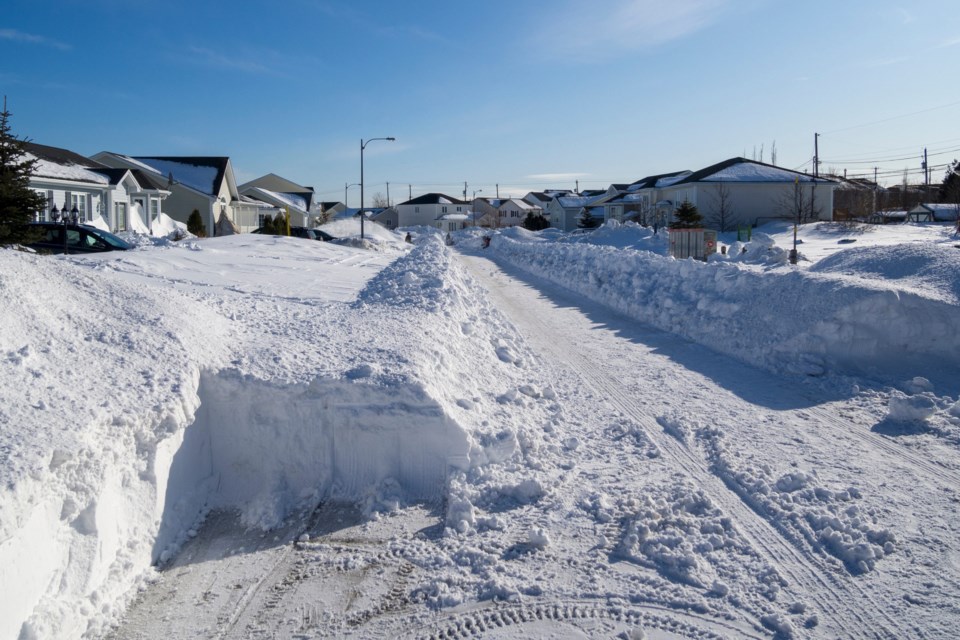With the first case of presumptive Coronavirus identified in BC we all need to do a few things. #1 wash hands; #2 do not panic; #3 plan for disruption (see last week’s column for more here.) This week’s Middle is all about preparedness.
Yes, this world health emergency is part of it. But other recent events have also helped spark this topic: Food Security. Do you think you have it?
The term is typically reserved to discussions of people living below the poverty line, or affected by political conflicts or wars, drought, or natural disaster in some far-flung place.
But many Canadians are ill prepared to sustain our day-to-day nutrition in the face of a major food delivery disruption — no matter what their financial status might be.
In an emergency, your credit limit means nada — what matters is what’s in your pantry.
Unfortunately, hundreds of thousands of Canadians live with food insecurity through no fault of their own. But there is no excuse for citizens in a position to afford food stocks to find themselves food insecure.
Bare cupboards due to laziness or lack of motivation to plan seems awfully lame in 2020. Think about it, what’s in your cupboards right now? If your city was suddenly cut off or faced a state of emergency…how many days would your food stocks sustain you?
This edition of The Middle is not fear mongering, it’s about avoiding the fear induced scramble mid-event. It’s a reminder that we should all have more than just an earthquake kit. Proper food security takes planning. It’s really not that difficult to get yourself sorted when you’re lucky enough to be able to afford it.
Ponder what sudden social food insecurity might look like in your neighbourhood.
It’s easy to drive around and pick up fully (or almost) prepared food. The convenience of being able to peruse full meals, in individual containers, at any grocery store leads to people allowing their cupboards to go bare of non-perishables.
Put simply, too many are Skip(ping) The Dishes and Uber Eating moment-to-moment and meal-to-meal.
Given recent events we need to be mindful of preparedness. Consider the official definition or the phrase food security, established at the World Food Conference in 1974: “a measure of the availability of food and individuals’ ability to access it.”
Ability to access it. If you couldn’t go shopping, if you couldn’t tap your way to payment, how long could you last? If you had to, how long could you go without hitting up an app or store for food?
In 2020 food security isn’t just about poverty/war/famine/fuel shortage. It’s about a weather event that messes up your ability (or your Uber Eats driver’s ability) to navigate the streets. It’s about a panic over mingling with others as we stare down a superbug. It’s about a road closed for days due to obstruction — whether caused by human error or natural disaster.
All these events could have significant impact on your ability to have food ordered to your front doorstep.
The simple solution: plan your shop for non-perishables. Think of things that could sustain you and yours for a significant spell. Think of things that don’t need refrigeration, that pack solid nutrients and protein. Foods that can feed all ages, and could be shared with your food insecure neighbour.
Food security is our responsibility. Get prepped.
Over the years, the World Health Organization has evolved the definition of the term: “Food Security exists when all people, at all times, have physical and economic access to sufficient, safe and nutritious food to meet their dietary needs and food preferences for an active and healthy life.”
Being Food Secure in 2020 should include planning for the worst-case scenario and being prepared to weather any and all unexpected social disruptions.
Jody Vance is a born and raised Vancouverite who’s spent 30 years in both local and national media. The first woman in the history of Canadian TV to host her own sports show in primetime, since 2011 she’s been working in both TV and radio covering news and current affairs.
SWIM ON:
- Last week, Jody Vance reflected on her close proximity to the SARS outbreak in Toronto.
- A new report indicates that yes, on an apples-to-apples comparison, BC drivers pay more in insurance.
- We have a contender: Sonia Furstenau is the first declared candidate to replace Andrew Weaver as BC Green leader.



